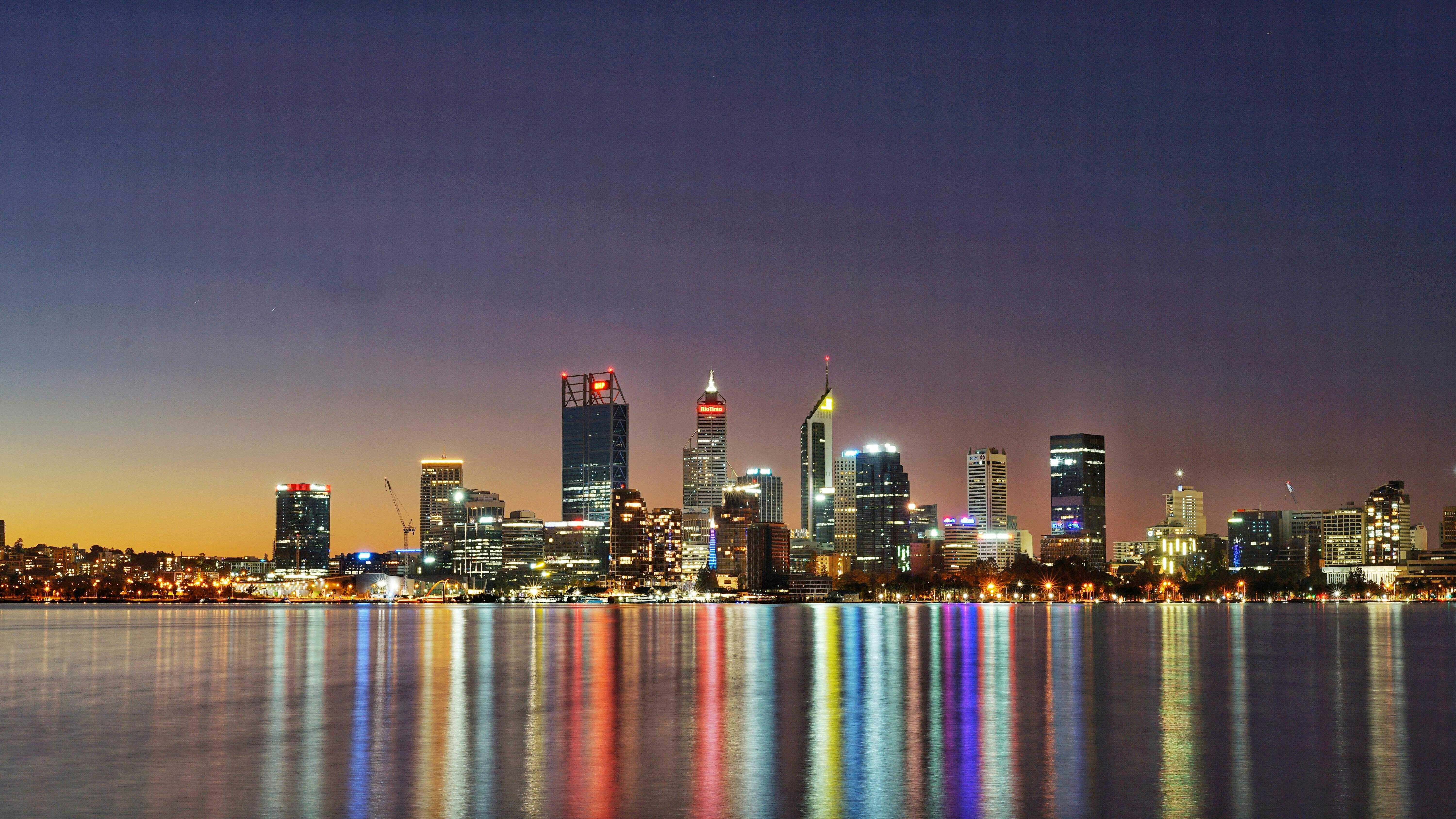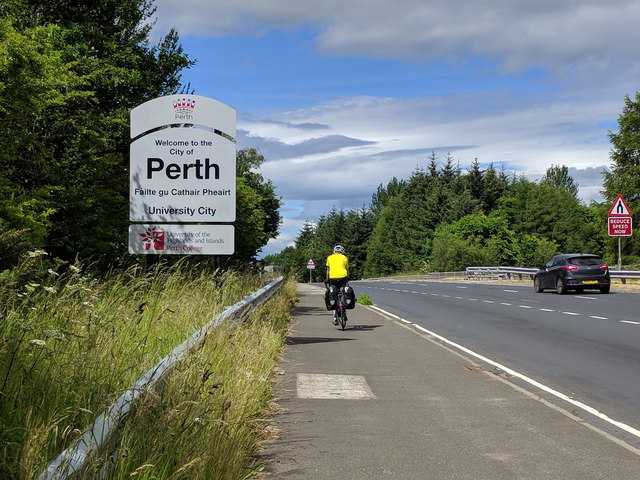Nestled on the shores of the Indian Ocean, Perth, the capital of Western Australia, beckons with its promise of endless sunshine, pristine beaches, and a relaxed lifestyle that seems a world away from the hustle and bustle of UK cities. Known affectionately as the 'City of Light' – a moniker earned when residents lit up the city for John Glenn's space orbit in 1962 – Perth offers a unique blend of urban sophistication and natural beauty that has long attracted British expatriates.
However, moving to Australia's most isolated capital city is no small feat. From navigating the complex visa process to adjusting to the laid-back Aussie culture, there's much to consider. This guide aims to provide you with detailed, practical information to help you make your move from the UK to Australia as smooth as possible.
Here's a quick checklist of essential tasks (don't worry, we go into more detail of each below)
- Visa: Apply for the appropriate visa (e.g., Skilled Independent 189).
- Healthcare: Enroll in Medicare; consider private health insurance.
- Accommodation: Arrange temporary housing and explore rental options.
- Job Search: Start job applications and ensure qualifications are recognised.
- Cost of Living: Budget for living expenses and open a local bank account.
- Transport: Get an Australian driver’s license or SmartRider for public transport.
- Schooling: Research and apply to schools if needed.
- Shipping: Organise shipping of personal items.
- Finances: Notify UK authorities, manage pensions, and apply for a Tax File Number.
- Culture: Adapt to Perth’s lifestyle and join expat groups.
Understanding Perth
Geography and Climate
Perth is situated on the southwest coast of Australia, along the Swan River. Its Mediterranean climate is characterised by hot, dry summers and mild, wet winters.
- Summer (December-February): Average temperatures 17.5-30°C (63.5-86°F)
- Winter (June-August): Average temperatures 8-19°C (46.4-66.2°F)
Perth boasts an average of 3,000 hours of sunshine per year, making it the sunniest capital city in Australia. This climate allows for an outdoor-centric lifestyle that many British expatriates find appealing.
Demographics
As of 2021, Perth's population stands at approximately 2.1 million, making it the fourth-largest city in Australia. It's a multicultural city, with a significant portion of its population born overseas. The UK is one of the largest sources of overseas-born residents, which means you'll likely find a vibrant British expat community.
Economy
Perth's economy is diverse but heavily influenced by the mining and resources sector. The city has experienced periods of boom and bust tied to commodity prices, which can affect job markets and housing prices.
Key industries include:
- Mining and Resources
- Construction
- Healthcare and Social Assistance
- Education and Training
- Professional, Scientific and Technical Services
Understanding these aspects of Perth will help you gauge whether it's the right fit for your lifestyle and career aspirations.

Visa and Immigration
Navigating Australia's immigration system is often the most complex part of moving to Perth. The process requires careful planning and attention to detail.
Skilled Migration Visas
For most UK citizens moving to Perth for work, skilled migration visas are the most common pathway. The main options are:
- Skilled Independent visa (subclass 189):
- Points-based visa for skilled workers without sponsorship
- Allows you to live and work anywhere in Australia
- Requires a high points score (currently 65 points minimum)
- Skilled Nominated visa (subclass 190):
- Requires nomination by the Western Australian government
- Gives you 5 additional points towards your score
- Typically requires a commitment to live and work in WA for at least two years
- Skilled Work Regional (Provisional) visa (subclass 491):
- Requires living and working in a designated regional area (which includes Perth)
- Valid for 5 years with a pathway to permanent residency
Points System
Australia uses a points-based system to assess skilled visa applicants. Points are awarded for:
- Age (maximum 30 points)
- English language proficiency (maximum 20 points)
- Skilled employment experience (maximum 20 points)
- Educational qualifications (maximum 20 points)
- Australian study requirement (maximum 5 points)
- Specialist education qualification (maximum 10 points)
- Credentialled community language (maximum 5 points)
- Study in regional Australia (maximum 5 points)
- Partner skills (maximum 10 points)
- Professional year in Australia (maximum 5 points)
You can assess your potential points score using the Department of Home Affairs Points Calculator.
Application Process
- Skills Assessment: Have your skills assessed by the relevant assessing authority for your occupation.
- Expression of Interest (EOI): Submit an EOI through SkillSelect.
- Invitation: If selected, you'll receive an invitation to apply for a visa.
- Visa Application: Lodge your visa application within 60 days of receiving an invitation.
- Health and Character Checks: Undergo required medical examinations and provide police clearance certificates.
- Decision: Wait for the Department of Home Affairs to process your application and make a decision.
Useful Resources
Remember, immigration policies can change, so always check the most up-to-date information from official sources. Consider seeking advice from a registered migration agent if your case is complex.
Get a
Free Quote
in seconds
Moving has bever been this simple with Deliver1
Healthcare System
Australia's healthcare system is a mix of public and private services, offering high-quality care that often surpasses what's available in the UK.
Medicare
Medicare is Australia's public health insurance scheme, providing access to a wide range of health services at low or no cost.
Eligibility for UK Citizens:
- UK citizens are typically eligible for Medicare under the Reciprocal Health Care Agreement between Australia and the UK.
- You can enrol in Medicare if you have a valid visa and are residing in Australia.
How to Enrol:
- Visit a Medicare Service Centre
- Bring your passport, visa details, and proof of residency
- Complete a Medicare enrolment form
What Medicare Covers:
- Free or subsidised treatment by medical practitioners
- Free treatment and accommodation in public hospitals
- 75% of the Medicare Schedule fee for private in-hospital services
- Subsidised prescription medicines under the Pharmaceutical Benefits Scheme (PBS)
Private Health Insurance
While Medicare provides comprehensive coverage, many Australians also opt for private health insurance. Benefits include:
- Choice of doctor and hospital
- Shorter wait times for elective surgeries
- Coverage for services not included in Medicare (e.g., dental, optical, physiotherapy)
- Potential tax benefits
Key Providers:
- Bupa
- Medibank
- HBF (Western Australia's largest health insurer)
Compare policies at PrivateHealth.gov.au.
Pharmaceutical Benefits Scheme (PBS)
The PBS subsidises prescription medications. Under this scheme, you pay only part of the cost of prescription medicines listed on the PBS schedule, with the government paying the remainder.
Mental Health Services
Australia has a strong focus on mental health, with various support services available:
- Beyond Blue: 1300 22 4636
- Lifeline: 13 11 14
- Headspace (for young people): 1800 650 890
Differences from the UK System
- GPs often require payment upfront, with a portion refunded through Medicare
- Specialist referrals are required for most non-GP services
- Dental services are generally not covered by Medicare
Useful Resources
- Medicare: Official Medicare website
- Health Direct: Government-funded service providing health information and advice
- MyHospitals: Compare public and private hospitals in Australia
Understanding and navigating the Australian healthcare system may take some time, but you'll likely find it efficient and of high quality. Remember to organise health insurance coverage before your move to ensure you're protected from your first day in Perth.

Employment Landscape
Perth's job market is diverse, with opportunities spanning various sectors. However, it's important to understand the unique aspects of working in Western Australia.
Key Industries
- Mining and Resources:
- Western Australia's largest industry
- Includes roles in engineering, geology, environmental science, and support services
- Companies like BHP, Rio Tinto, and Woodside have a significant presence
- Healthcare and Social Assistance:
- Growing sector due to an ageing population
- Opportunities in nursing, aged care, allied health, and social work
- Construction:
- Cyclical industry tied to overall economic conditions
- Opportunities in trades, project management, and engineering
- Education and Training:
- Stable sector with opportunities in schools, universities, and vocational training
- Teaching qualifications may need to be recognised by the Teacher Registration Board of Western Australia
- Professional, Scientific and Technical Services:
- Growing sector, particularly in areas supporting the resources industry
- Opportunities in IT, consulting, legal services, and research
Job Search Strategies
- Online Job Boards:
- LinkedIn: Widely used for professional networking and job searching
- Recruitment Agencies: Many specialise in specific industries or professions
- Government Jobs:
- Company Websites: Many large employers list vacancies on their own career pages
- Networking: Join professional associations and attend industry events
Working Culture
- Work-life balance is highly valued
- Standard full-time work week is 38 hours
- Minimum of 4 weeks annual leave plus 10 public holidays
- Casual dress codes are common in many industries
- "Tall poppy syndrome" exists - excessive self-promotion may be frowned upon
Salary and Benefits
- Salaries in Perth are generally competitive, especially in the resources sector
- Superannuation (pension) contribution of 10.5% of salary is paid by employers
- Many roles include salary packaging options for tax benefits
Recognition of UK Qualifications
- Many UK qualifications are recognised in Australia
- Some professions require local registration or additional training
- Check with the relevant professional body or use the Country Education Profiles tool
Visa Considerations
- Ensure your visa allows you to work in Australia
- Some visas have work restrictions or requirements to work in specific regions
Useful Resources
Remember, the job market can be competitive, especially for newcomers. Start your job search well in advance of your move, and be prepared to network extensively once you arrive in Perth.

Cost of Living and Finances
Understanding the cost of living in Perth is crucial for budgeting and financial planning. While Perth is generally more affordable than Sydney or Melbourne, it's still considered expensive by global standards.
Comparative Costs
Here's a rough comparison of some common expenses between Perth and London (as of 2024):
Expense | Perth (AUD) | London (GBP) | Perth (GBP) |
| Monthly rent (1-bedroom apartment in city centre) | 1,800 | 1,800 | 945 |
| Monthly public transport pass | 140 | 180 | 74 |
| Meal at an inexpensive restaurant | 25 | 18 | 13 |
| Cappuccino | 5 | 3.50 | 2.60 |
| 1L of milk | 2.50 | 1.20 | 1.30 |
| Loaf of bread | 3.50 | 1.10 | 1.85 |
| Monthly utilities (85m2 flat) | 200 | 200 | 105 |
Note: Exchange rate used is 1 AUD = 0.525 GBP (April 2024)
Housing Costs
Housing is typically the largest expense:
- Renting: 25-35% of income is common
- Buying: Median house price in Perth is around AUD 550,000 (£289,000) as of 2024
Groceries and Dining Out
- Groceries can be more expensive than in the UK, especially for imported goods
- Dining out can range from affordable (AUD 25 for a meal in a casual restaurant) to expensive (AUD 100+ per person in a high-end restaurant)
Transportation
- Public transport is relatively affordable with a SmartRider card
- Fuel prices are generally lower than in the UK
- Car insurance and registration can be expensive
Utilities and Internet
- Electricity costs can be high due to air conditioning use in summer
- Internet plans are generally more expensive and can have data caps
Healthcare
- Medicare covers many healthcare costs
- Private health insurance premiums vary widely based on coverage
Education
- Public schools are free for permanent residents and citizens
- Private school fees can range from AUD 5,000 to 30,000+ per year
Taxes
- Income tax rates are progressive, ranging from 0% to 45%
- Goods and Services Tax (GST) of 10% applies to most purchases
Banking and Finance
- Opening a Bank Account:
- Can often be done before arriving in Australia
- Major banks: Commonwealth Bank, ANZ, Westpac, NAB
- Bring passport, visa documentation, and proof of address
- Tax File Number (TFN):
- Credit Score:
- UK credit history doesn't transfer
- Start building Australian credit history as soon as possible
- Superannuation:
- Compulsory retirement savings system
- Employers contribute 10.5% of your salary
- UK pensions can potentially be transferred under certain conditions
Money Transfer
- Use specialist forex services for better rates on large transfers
- Consider multi-currency accounts offered by some online banks
Useful Resources
While some aspects of life in Perth may be more expensive than in the UK, many expatriates find that the overall quality of life justifies the costs. Careful budgeting and financial planning will help ensure a smooth transition to your new life in Perth.

Housing and Neighbourhoods
Finding the right place to live is crucial for settling into life in Perth. The city offers a range of housing options and diverse neighbourhoods to suit different lifestyles and budgets.
Types of Housing
- Houses: Freestanding homes, often with gardens
- Apartments: Known as 'units' or 'flats', common in inner-city areas
- Townhouses: Multi-level attached homes, often in complexes with shared facilities
- Duplexes: Houses split into two separate dwellings
Renting vs. Buying
- Renting is common and offers flexibility for newcomers
- Buying property requires a significant investment but can be a good long-term option
Renting Process:
- Search online platforms like realestate.com.au or Domain
- Attend home opens (viewings)
- Submit a rental application with references
- Sign a lease agreement (typically 6-12 months)
- Pay bond (usually 4 weeks rent) and first month's rent
Buying Process:
- Get mortgage pre-approval
- Search for properties
- Make an offer or bid at auction
- If accepted, pay deposit and complete settlement process
Popular Neighbourhoods
- Subiaco:
- Close to city centre
- Trendy cafes and boutiques
- Mix of houses and apartments
- Fremantle:
- Historic port city
- Vibrant arts scene
- Beach lifestyle
- South Perth:
- Riverside location with city views
- Family-friendly with good schools
- Mix of apartments and large homes
- Cottesloe:
- Beachside suburb
- Affluent area with period homes
- Popular with UK expats
- Mount Lawley:
- Inner-city suburb with character homes
- Bustling cafe and bar scene
- Close to public transport
Considerations When Choosing a Neighbourhood
- Proximity to work or schools
- Public transport accessibility
- Local amenities (shops, parks, restaurants)
- Community vibe and demographics
- Future development plans
Useful Resources
Remember, Perth is a sprawling city, and commute times can be significant. Consider your daily routine when choosing where to live.
Transportation and Driving
Perth's transportation system is well-developed, offering various options for getting around the city and surrounding areas.
Public Transport
Perth's public transport system, Transperth, includes:
- Trains:
- Five main lines radiating from Perth city
- Reliable and frequent service
- Buses:
- Extensive network covering most suburbs
- Free CAT buses in Perth CBD and Fremantle
- Ferries:
- Services across the Swan River to South Perth
SmartRider Card:
- Reloadable card for all public transport
- Offers discounted fares compared to cash tickets
- Available at major stations and some retail outlets
Driving
- Australians drive on the left, like in the UK
- UK driver's licenses are valid for three months after arrival
- After three months, you'll need to obtain a Western Australian driver's license
Obtaining a WA Driver's License:
- Complete a theory test
- Pass an eyesight test
- Provide proof of identity and residency
- Pay the applicable fee
Key Differences from UK Driving:
- Hook turns in some intersections
- Different road signs and markings
- More roundabouts than traffic lights in some areas
Cycling
- Perth has an extensive network of cycling paths
- Bike-friendly culture, especially along the coast
- Helmet use is mandatory
Taxis and Ride-sharing
- Taxi services available throughout Perth
- Ride-sharing services like Uber and Ola are widely used
Inter-city Travel
- Perth Airport serves domestic and international flights
- Train services to regional areas like Bunbury and Kalgoorlie
- Extensive coach network for longer journeys
Useful Resources
Get a
Free Quote
in seconds
Moving has bever been this simple with Deliver1
Education System
Perth offers a high standard of education, with options ranging from public and private schools to universities and vocational training.
School System
- Compulsory education from age 5 to 17
- Four terms per year, typically running from late January to mid-December
School Types:
- Public Schools:
- Free for permanent residents and citizens
- Zoned, meaning enrolment is based on your residential address
- Private Schools:
- Include Catholic and Independent schools
- Charge tuition fees
- Often have waiting lists, so apply early
- International Schools:
- Offer curricula from other countries (e.g., International Baccalaureate)
- Useful for temporary residents or those planning to return to the UK
School Years:
- Primary School: Years 1-6 (ages 5-11)
- Secondary School: Years 7-12 (ages 12-17)
Tertiary Education
Perth has five universities:
- University of Western Australia (UWA)
- Curtin University
- Murdoch University
- Edith Cowan University (ECU)
- University of Notre Dame Australia
TAFE (Technical and Further Education):
- Offers vocational and trade qualifications
- Popular for both school leavers and adults retraining
Recognition of UK Qualifications
- Many UK qualifications are recognised in Australia
- Check with the relevant professional body or educational institution for specific requirements
Useful Resources
Culture and Lifestyle
Perth's lifestyle is characterised by its outdoor culture, relaxed atmosphere, and multicultural community.
Outdoor Living
- Beautiful beaches for swimming, surfing, and sunbathing
- Numerous parks and reserves for picnics and barbecues
- Popular outdoor activities include hiking, cycling, and water sports
Sports
- Australian Rules Football (AFL) is hugely popular
- Cricket in summer
- Soccer, rugby, and netball also widely played
Arts and Culture
- Perth Festival: Annual international arts festival
- Fringe World: One of the world's largest fringe festivals
- Numerous museums and art galleries, including the Art Gallery of Western Australia
Food and Drink
- Multicultural cuisine reflecting diverse population
- Emphasis on fresh, local produce
- Thriving cafe culture
- World-class wineries in nearby Swan Valley and Margaret River regions
Social Etiquette
- Casual and informal compared to the UK
- Use of first names is common, even in professional settings
- Tipping is not obligatory but appreciated for good service
Climate Considerations
- Very hot and dry summers (December-February)
- Mild winters (June-August)
- High UV levels year-round - sun protection is crucial
Useful Resources
Preparing for the Move
Proper preparation is key to a smooth transition to life in Perth.
Checklist
- Visa: Ensure your visa is approved and understand its conditions
- Accommodation: Arrange temporary accommodation for arrival
- Employment: Secure a job or have a job search strategy
- Healthcare:
- Arrange travel insurance to cover your initial period
- Understand Medicare enrolment process
- Finances:
- Notify your UK bank of your move
- Research Australian banking options
- Plan for currency exchange
- Education: If applicable, research and apply to schools or universities
- Pets: Check quarantine requirements if bringing pets
- Shipping: Arrange shipping of household goods
- Documents: Gather important documents (birth certificates, qualifications, etc.)
- Utilities: Cancel UK utilities and research Australian providers
- Taxes: Inform HMRC of your departure from the UK
Timeline
- 6-12 months before: Start visa application process
- 3-6 months before: Research housing and schools, arrange shipping
- 1-3 months before: Finalise accommodation, notify relevant UK authorities
- 1 month before: Confirm all travel arrangements, pack essentials
Useful Resources
Settling In
Once you arrive in Perth, these steps will help you establish your new life:
- Accommodation: Set up utilities and internet in your new home
- Healthcare: Enrol in Medicare
- Finances:
- Open an Australian bank account
- Apply for a Tax File Number
- Transportation:
- Get a SmartRider card for public transport
- Consider obtaining an Australian driver's license
- Communication: Set up an Australian mobile phone plan
- Community:
- Join local expat groups or community organisations
- Explore your local area and meet neighbours
- Employment: If not already secured, start your job search
- Education: Enrol children in school if applicable
Remember, settling into a new country takes time. Be patient with yourself and open to new experiences. Perth's community is generally welcoming to newcomers, and you'll likely find plenty of support as you adjust to your new home.
Moving to Perth from the UK is a significant life change, but with proper planning and an open mind, it can be an incredibly rewarding experience. From the stunning beaches to the laid-back lifestyle and opportunities for personal and professional growth, Perth has much to offer. While challenges may arise, the resources and information provided in this guide should help you navigate your move with confidence.
When you're ready, why not let Deliver1 the heavy lifting for you? We've moved countless families to their new lives in Australia and are experts in getting your belongings there, quickly, easily and cheaper than the rest! Get in touch today and see how we can make your move a stress-free one.





